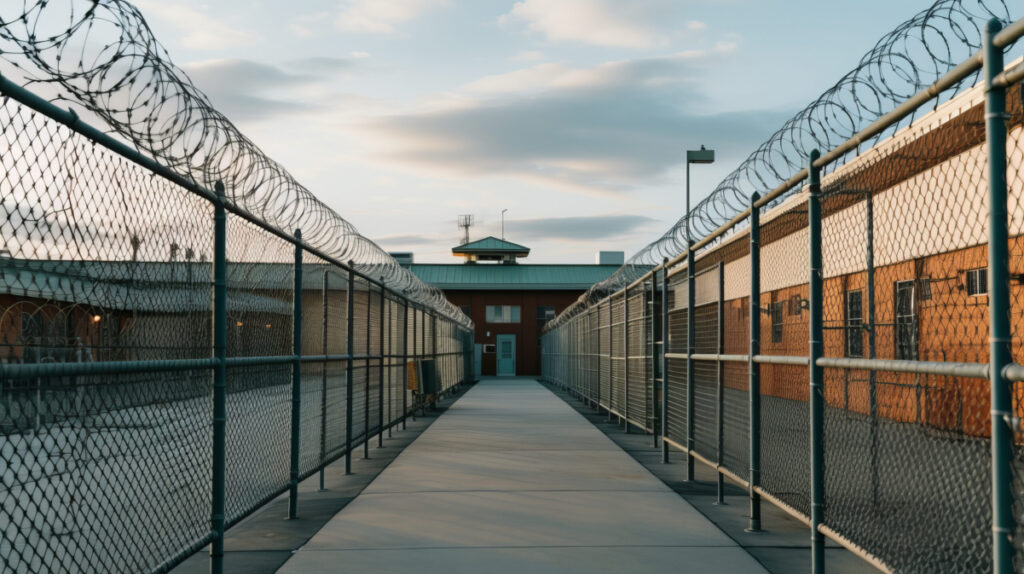“Nothing can really prepare you for the unique nothingness that is time in prison.”
One of Ryan’s* most difficult memories is that of him desperately hugging his loved ones with tears clouding his eyes. That last moment of humility and compassion lingered in the elevator as he was sent down into the cold concrete maw of Brisbane’s Supreme Court.
A proposition to Ryan made by ‘friends’ quickly changed and he had landed in an uncomfortable world of crime figures, implied threats and unknown consequences. These ‘friends’ quickly became the people he was most afraid of as he found himself wrapped in a world of drugs and violence. More than anything else, Ryan wanted out. He wanted life to return to normal.
When police arrested him one winter morning, more than anything, he was glad it was finally over.
Ryan didn’t know anything about prison or the justice system. He had worked as an analyst in a professional role knowing no-one with any experience of crime. His 9-5 looked like anyone else’s and his weekends consisted of university study and time with friends, family and loved ones. He was a normal person with normal ambitions, hopes and routines.
In the small concrete cell below the Supreme Court, with the scent of loves ones still on his clothes, Ryan was introduced to incarceration for the first time. The early days and weeks were indescribably difficult.
“Nothing can really prepare you for the unique nothingness that is time in prison,” he says. “Life is difficult sometimes, but the unique despair I felt then was unlike anything else.”
Tearily phoning his family and friends each day, Ryan had to learn how to cope. His family and friends were devastated, with grave fears for his mental health.
“You’re powerless,” Ryan’s mother describes. “Your son is breaking down entirely and you’re on the end of a phone unable to do anything. It’s really difficult to describe how hard those first weeks were.”
Ryan’s brother describes a stark scene devoid of all humility when visiting Ryan for the first time.
“You arrive at prison and there’s walls of wire designed to impose critical injuries on anyone who comes into contact,” he says. “Everything is grey and bleak; an environment seemingly designed to suck the warmth out of life itself. I arrived and remember thinking, ‘my brother is in there’. Just seeing prison for the first time was completely imposing – and I wasn’t the one incarcerated.”
It was over a month after Ryan landed in prison that his brother was able to see him.
“It was a moment of such sadness that I struggle describing that first visit even now,” he says. “I love my brother so much, and when they led him into the visit area behind the glass, I just started sobbing uncontrollably. I had so much trouble accepting that my vibrant, happy and loving brother who had so much to do with my life was suddenly reduced to a grey gaunt mess inside a facility designed for despair.”
“I arrived and remember thinking, ‘my brother is in there’. Just seeing prison for the first time was completely imposing – and I wasn’t the one incarcerated.”
A large hole appeared in the lives of many. Family, friends and work colleagues banded together to support each other, relying on compassion to accept the loss of Ryan. Though while a close knit of friends and family formed, everyone was acutely aware that Ryan had no such thing. For all intents and purposes, he was dealing with his despair alone.
“I’m a social person,” Ryan says. “I’ve always had my friends and family around me and I had to learn how to be okay with just myself. You don’t really form close friendships with many prisoners and ultimately you have to worry about your own interests – your mental health, how you’re going to fill each day, when you’re going to speak with your family, and what books you’re going to read.”
It was pure luck that saw Ryan placed into a prison focused on training inmates in new skills. He began a new type of 9-5 job with Green Fox Training Studio soon after its inception within the prison.
“Finding something meaningful to do each day was the single biggest stressor I experienced,” he says. “To be able to work in an office-based role within the correctional environment drastically changed my outlook on life. I knew I had to get through over three years of prison and when I first saw a means to do that time whilst completing positive, productive work, I began to start to cope. It was a pivotal moment.”
Ryan is now approaching his release date.
“I got my parole paperwork and I remember holding it and thinking back to those first months,” he says. “Back then, I didn’t think I would ever get to hold that piece of paper; I thought I wasn’t mentally strong enough to make it.”
Ryan is firmly focused on his future, and Green Fox Studio is so proud to be one of his career considerations after release.
“Green Fox Studio completely turned my custodial journey on its head,” he says. “Suddenly I found a way to contribute meaningfully and grow my skill set during imprisonment. The value of this is priceless in a world where you measure every second with trepidation.”
*Prisoner’s name changed for legal reasons.

